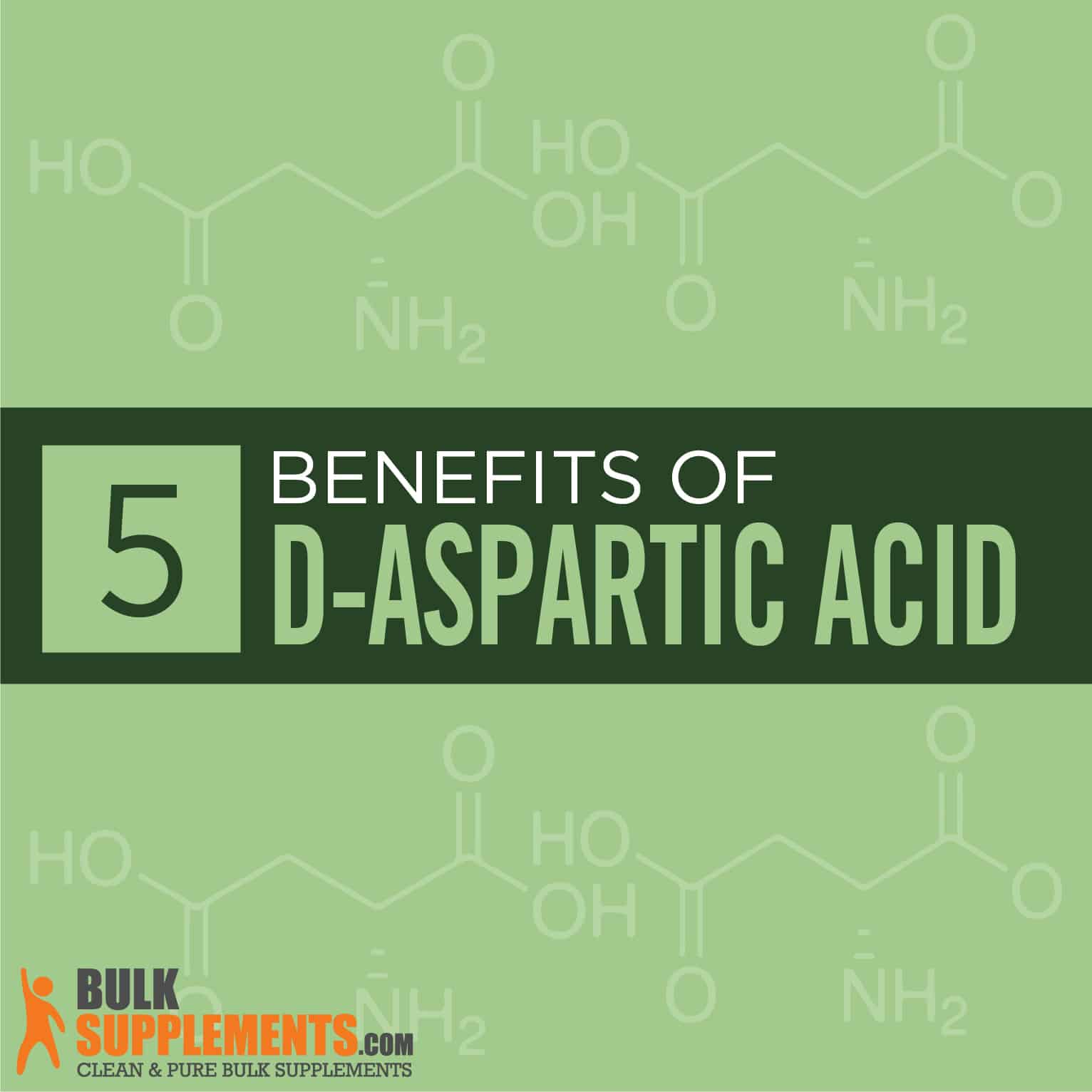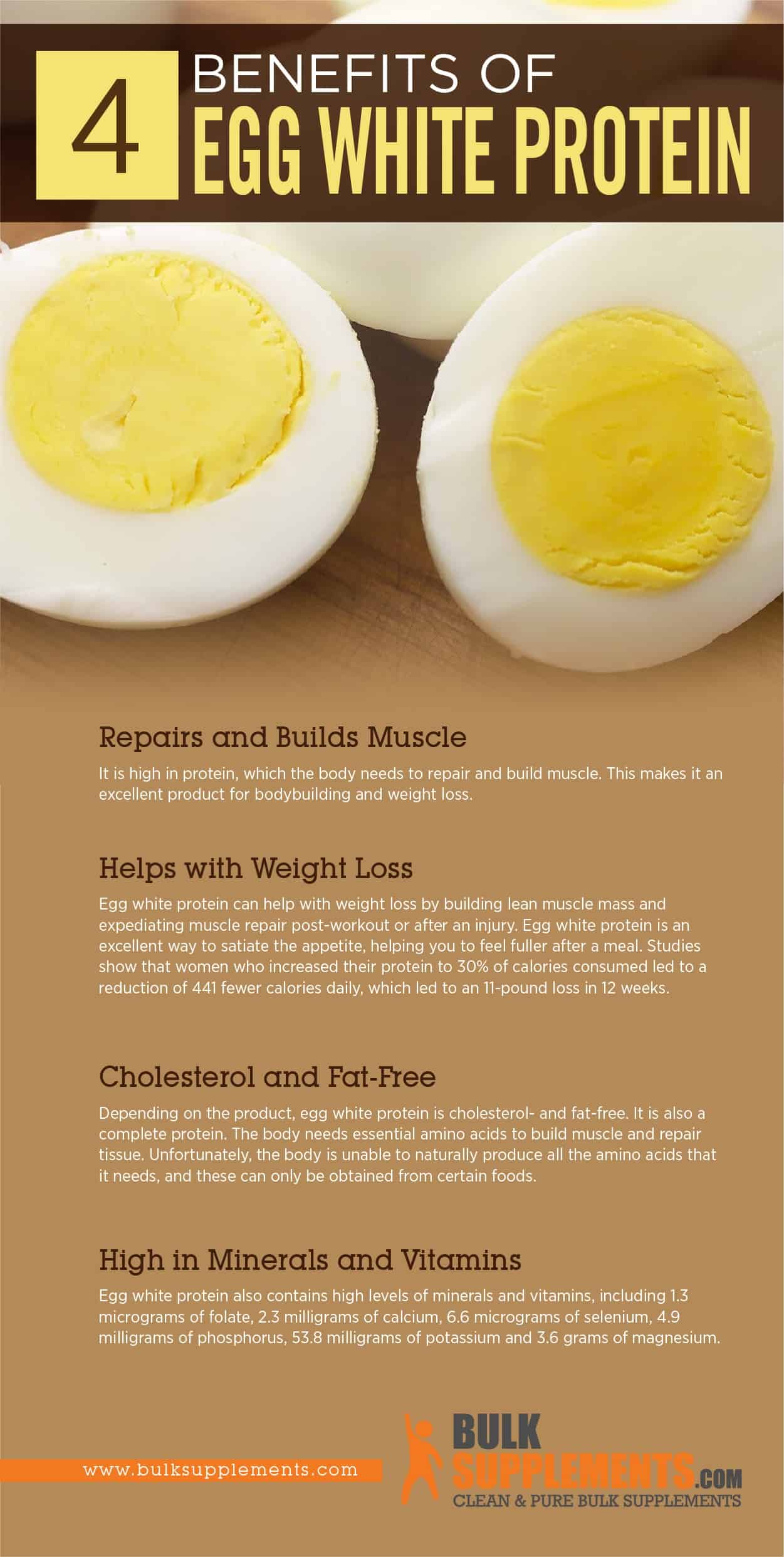Egg White Protein: Benefits, Side Effects & Dosage

Egg White Protein
What is Egg White Protein?
Eggs contain a large amount of protein, vitamins and minerals and are very healthy. However, these mini-protein bombs also contain high amounts of cholesterol and calories, most of which are found in the yolk part of the egg. Eggs are also susceptible to salmonella bacteria and avidin, which binds to biotin. Egg white protein is also known as the albumin of the egg (the transparent portion of an uncooked egg) and contains the highest amount of protein.
How is Egg White Protein Made?
The white portion of an egg can be supplemented with egg white protein powder that is made from dehydrating the clear part of an egg. The whites of the egg are first dehydrated and then processed into a super fine powder. Once dehydrated, the product goes through a pasteurization process to remove the risk of salmonella and to inactivate the protein called avidin.
Egg White Protein vs. Whey Protein
It is essential to consider whether you have any allergies and what your final goal is when deciding on the type of protein with which to supplement. There are differences between it and whey protein that occur on different levels.
Both egg and whey protein contain all the essential amino acids that the body needs to function, including amino acids that the body doesn’t produce naturally. Amino acids are the building blocks of muscle and tissue. When comparing the amount of protein found in one serving of egg white and whey protein, one serving of it contains approximately 24 grams of protein, while whey protein has about 20-30 grams of protein.
Carbohydrates, Fats and Calories
Whey protein tends to have a higher amount of carbohydrates per serving because it is made from dairy products. It is possible to take hydrolyzed whey, which typically has the same amount of carbs as egg white protein.
The fat content of it is close to zero, and whey protein supplements are usually about four grams per serving. Both egg white and whey protein contain about 120 to 130 calories.
Some egg white proteins can contain as much as three times the amount of cholesterol than that of whey, which is about 15 grams per serving. It is also possible to get egg white protein powder that is cholesterol-free.
It does not contain lactose, and there is, therefore, a preferable choice of protein for lactose-intolerant people. Whey protein isolate contains trace amounts of lactose and is not ideal for lactose-intolerant people.
Benefits of Egg White Protein
Repairs and Builds Muscle
It is high in protein, which the body needs to repair and build muscle. This makes it an excellent product for bodybuilding and weight loss.
Helps with Weight Loss
Egg white protein can help with weight loss by building lean muscle mass and expediating muscle repair post-workout or after an injury. It is an excellent way to satiate the appetite, helping you to feel fuller after a meal. Studies show that women who increased their protein to 30% of calories consumed led to a reduction of 441 fewer calories daily, which led to an 11-pound loss in 12 weeks.
Cholesterol and Fat-Free
Depending on the product, it is cholesterol- and fat-free. It is also a complete protein. The body needs essential amino acids to build muscle and repair tissue. Unfortunately, the body is unable to naturally produce all the amino acids that it needs, and these can only be obtained from certain foods.
High in Minerals and Vitamins
Egg white protein also contains high levels of minerals and vitamins, including 1.3 micrograms of folate, 2.3 milligrams of calcium, 6.6 micrograms of selenium, 4.9 milligrams of phosphorus, 53.8 milligrams of potassium and 3.6 grams of magnesium.
SEE ALSO

D-Aspartic Acid: Benefits, Side Effects & Dosage

Side Effects of Egg White Protein
Allergies
Some people are allergic to egg whites, which means that the immune system identifies the proteins as harmful. Allergies can lead to swelling, watery eyes, hives, rashes and a runny nose. It can also lead to nausea, vomiting and digestive issues. Anaphylactic shock can occur in some cases, though this is extremely rare.
Salmonella Poisoning
Adverse side effects from eating it can include salmonella poisoning. Egg whites are pasteurized to eliminate salmonella bacteria when they are made into a supplement form.
Avidin
Eggs naturally have a protein call avidin, which binds to biotin. When the protein binds to biotin, it can stop your body from absorbing it, which can lead to a deficiency of biotin. When egg white powder is produced, it is depleted of avidin. Unlike eating regular eggs, egg white powder does not pose the risk of avidin and salmonella.
How to Use Egg White Protein
Supplementing with it daily is an excellent way to increase the amount of protein in your diet, build muscle mass or lose weight. Taking the powder before a meal will make you feel fuller and therefore help with weight loss. Moreover, taking egg white protein powder before and during your exercise routine helps to build muscle, increases muscle repair and reduces soreness after exercise.
Dosage of Egg White Protein
When taking egg white protein powder, it is best to take a serving size of 30 grams daily. Do keep in mind, though, that the dosage can vary depending on one’s build and body weight, rate of metabolism and size. Before adding this supplement to your regimen, be sure to speak to a doctor to determine an optimal dosage.
The Bottom Line
Egg white protein is also known as the albumin of the egg and contains the highest amount of protein in the egg. It also contains high levels of minerals and vitamins, and has zero calories. Egg yolk, however, contains high levels of cholesterol and fat, making egg white protein powder a healthier alternative than regular eggs. Egg white protein powder has several benefits, including building and repairing muscle and helping with weight loss.



